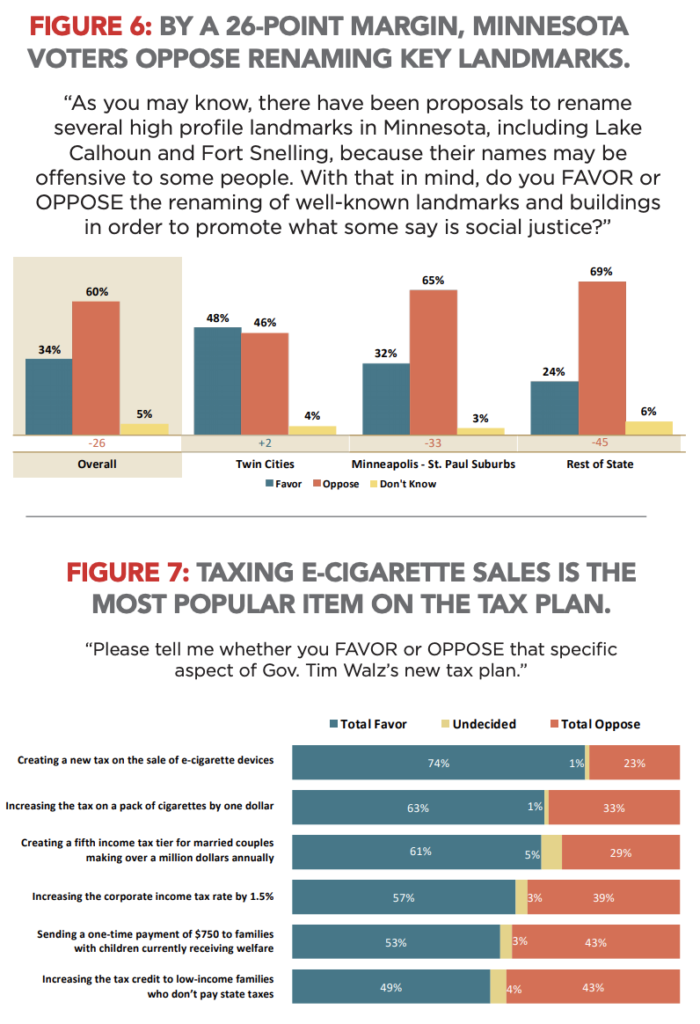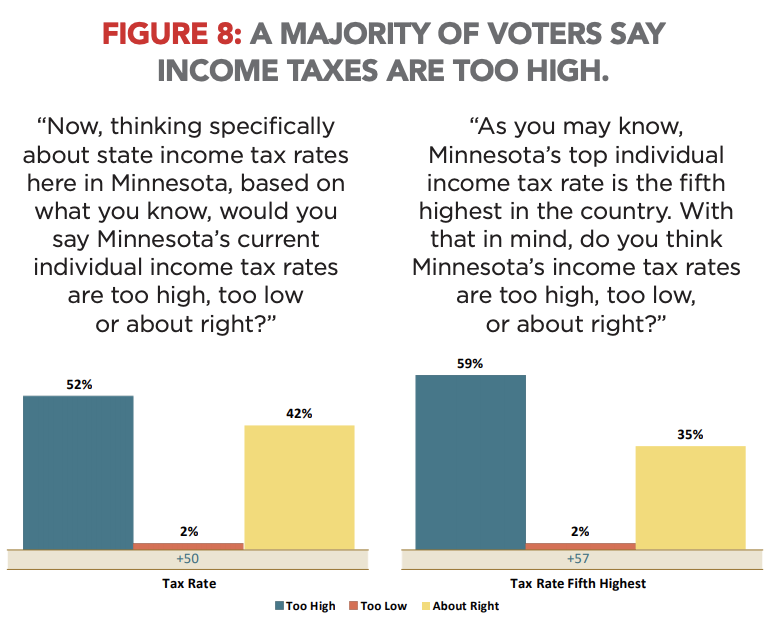Poll: You are only young once
Young voters skew strikingly more liberal on a variety of issues.
The latest Thinking Minnesota Poll discovered that young Minnesotans voiced strikingly different opinions from all other age groups on issues such as education, culture and even tax policy.
Voters ages 18 to 34 stand out as the only subset that favors a curriculum teaching students that America’s Westward Expansion was oppressive (68 percent) and that our country’s history is rooted in systemic racism (65 percent). And a filibuster-proof majority (63 percent) in a more micro subset — women, ages 18 to 54 — expect our kids to learn that systemic racism is the reason we’re all here today.
Young adults are also the lone group with a majority that wants to rename famous landmarks throughout the state (54 percent), and the single subset that is both lax and ill-informed on Minnesota’s exorbitant tax rates.
The millennial/Generation Z demographic made up about 20 percent of the voters polled, the same percentage as the survey’s four other groups (ages 35 to 44, 45 to 54, 55 to 64 and 65-plus).
But the average of the latter categories shows that only 40 percent feel westward expansion was oppressive, just 42 percent think systemic racism is the foundation of our country’s history, and a mere 30 percent want places like Fort Snelling to take a new name.
American Experiment President John Hinderaker says this is more evidence that leftists want to destroy America.
“Only they don’t say destroy,” he says. “They say, ‘Fundamentally transform.’ You can’t have a society that teaches kids to hate their country. It’s unprecedented.”
Meeting Street Insights, a polling company based in Charleston, S.C., interviewed 500 registered voters with a mix of cell phones and landlines from Feb. 16 to 18. The poll’s margin of error is +/- 4.38 percent.
There were, of course, commonalities among the groups.
On increasing focus of indigenous peoples, 88 percent of the youngest voters support it, while 73 percent of all other age brackets support it.
The outcomes were similar on the issue of teaching students to recognize unfairness, stereotypes and biases, at 80 percent (young) and 70 percent (older age bracket average).
And overwhelming majorities across the board oppose decreased focus on world and U.S. history, including the Civil War and World War II.
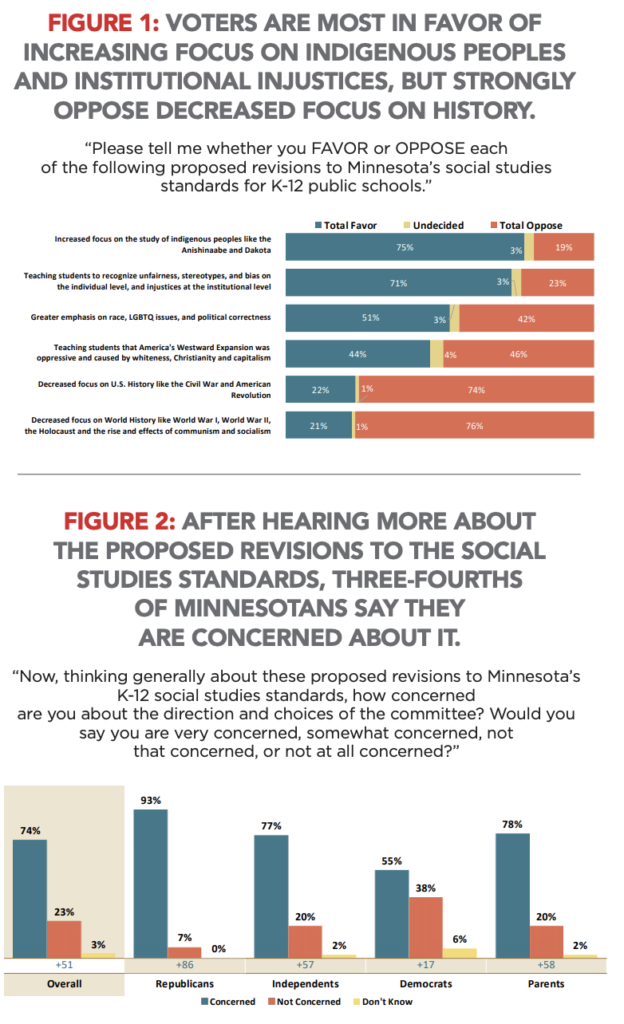
Youth and taxes
Like cultural and curricular issues, millennials and Gen-Zers tend to think differently about taxes.
While their older counterparts are about split on raising the state’s corporate income tax, the young ones are quite certain, to the tune of 70 percent, there should be an increase.
With income taxes, they’re too high for only 37 percent of our youngest voters, with 52 percent of them saying the rates are about right. For everyone else, 55 percent say the government takes too much of their income and 40 percent say it’s the right amount.
The data become more interesting, however, when respondents learn that Minnesotans pay the fifth-highest income taxes in the nation.
Now 56 percent of the Gen Z/millennial group say taxes are too high, a jump of almost 20 percentage points. Voters of all other ages averaged an increase of less than five points when told about their state’s high tax rates.
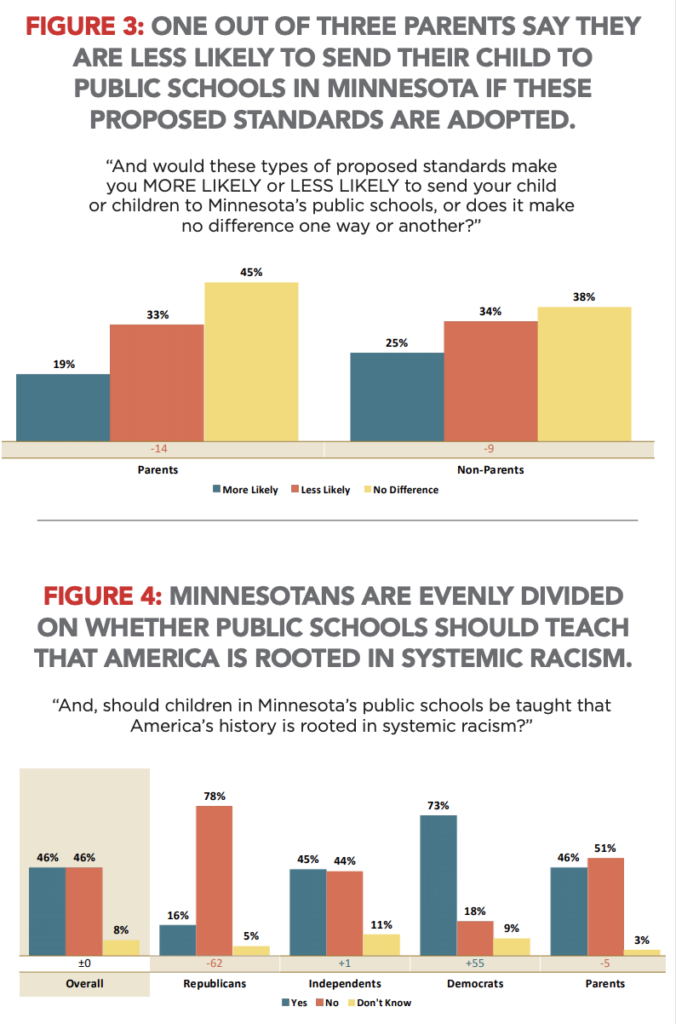
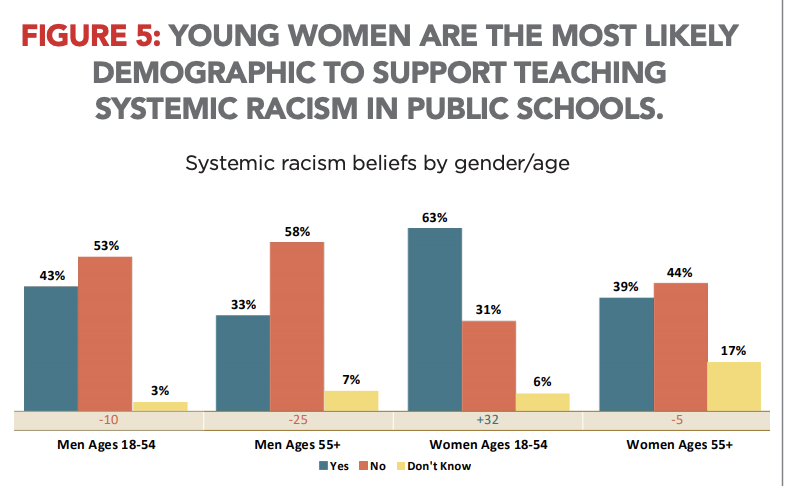
Democratic divide
Another striking outcome of the poll was the dramatic split among Democrats when it comes to renaming landmarks.
Almost three-quarters of the party’s base wants to follow the action taken for Bde Maka Ska. (It used to be called Lake Calhoun.) But only 43 percent of voters who lean Democrat want the same. Overall, 60 percent of Democrats like name changes.
It’s a huge contrast with Republicans — 90 percent oppose name changes, including 97 percent of the base and 83 percent of moderates.
American Experiment Senior Policy Fellow Katherine Kersten believes the far left, including young voters, just don’t know the facts. It’s likely the reason they complained about John Calhoun being a slaveowner when they successfully pushed for Lake Calhoun to become Bde Maka Ska, she says, despite the fact that wasn’t even the lake’s Dakota name and the Dakota Indians practiced slavery themselves.
Kersten went on to cite another troubling tidbit: National testing data from 30 years ago showed that a majority of American high school seniors could not identify Winston Churchill or Joseph Stalin.
“And our young people’s deficit in historical knowledge is markedly worse today,” she says. “We’d better correct that fast, or we risk losing all that makes our nation exceptional.”
